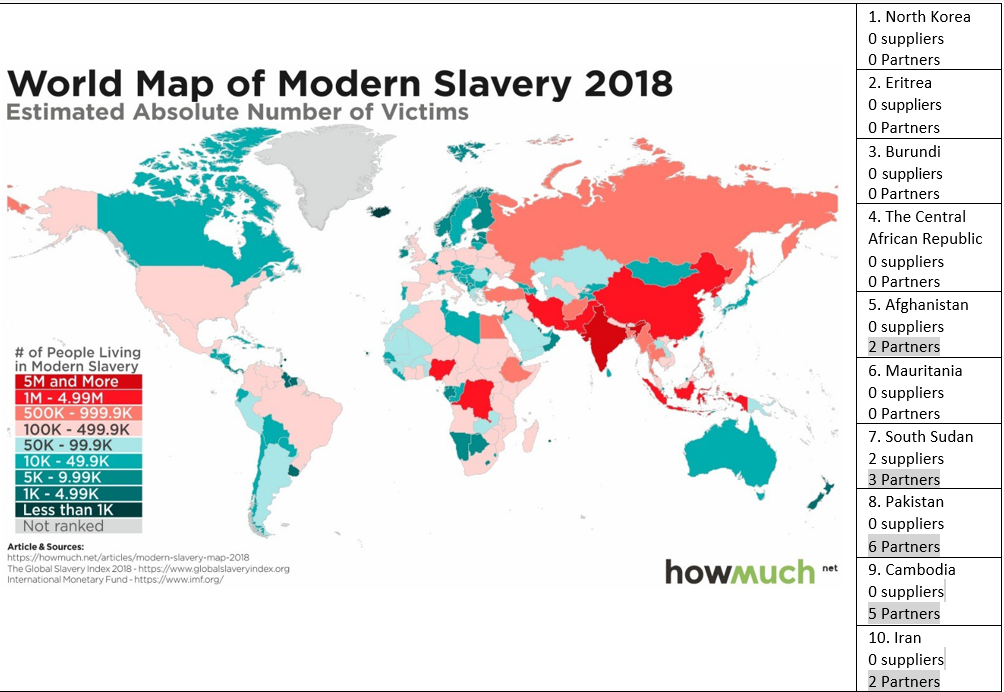This is Liverpool School of Tropical Medicine (LSTM) Group’s statement for the financial year 2019-20.
Introduction from the Director of LSTM
Since the publication of our first statement in 2017, LSTM has worked towards building a strong foundation to work from to contribute to the global fight against slavery and human trafficking. This statement is designed to satisfy the requirements of Section 54 of the Modern Slavery Act 2015, by informing members, staff, and public stakeholders about LUPC and its policy with respect to modern slavery, human trafficking, forced and bonded labour and labour rights violations in its supply chains and the steps taken to identify, prevent and mitigate the risks.
1. Organisation’s Structure
LSTM, founded in 1898, is the oldest school of tropical medicine in the world and is an internationally recognised centre of excellence for teaching and research in tropical diseases. The LSTM Group consists of Liverpool School of Tropical Medicine, comprising of academic departments, research centres, administrative departments and libraries; African based NGO’s; consulting partners through LSTM Consulting; IVCC, researching the control of vector-borne diseases such as malaria and dengue; Well Travelled Clinics Ltd; and LSTM Foundation India.
Our staff operate on an international scale researching and delivering life saving techniques in tropical medicine.
The LSTM Modern Slavery Working group consists of members from different disciplines across the organisation including Academic Departments and Professional Services. The group work to make recommendations on preventing and addressing modern slavery within the LSTM Group and supply chain. Decisions and recommendations are shared with staff, students and partners throughout the LSTM Group.
2. Our Policies on Slavery and Human Trafficking
We are committed to endeavouring to ensure that there is no modern slavery or human trafficking in our supply chains or in any part of our business. Our new Modern Slavery Policy was published this year and has been shared with all staff through our policy hub.
All our policies, including our Supplier Code of Practice, Staff Code of Conduct, Safeguarding Policy and the LSTM Public Interest Disclosure (whistleblowing) policy are available to all staff through our Policy Hub. The Supplier Code of Conduct is also available externally through our website.
LSTM Group operates to ensure fairness in the recruitment, retention and development of employees and it seeks to comply with all applicable employment legislation. LSTM Group seeks to provide a work environment where employees are treated with respect, dignity and consideration. This year we welcomed a new Inclusion, Diversity and Engagement manager to the Modern Slavery Working Group to enhance our strategy in delivering improvements in the work force both within LSTM and throughout our Supply Chain.
3. Due Diligence Process for Slavery and Human Trafficking
The LSTM Due Diligence process is extensive and is used by our Research, Fundraising and Procurement teams. The process includes specific questions regarding Modern Slavery awareness and compliance with the Modern Slavery Act alongside other legislative requirements such as Money Laundering, Criminal Finance and the Bribery Act. This year, the team have focused on bringing the assessment online to streamline the process flow for due diligence. The RMS team are working on using the Delta eSourcing portal (https://www.delta-esourcing.com/) to carry out the due diligence process on partners electronically. The efficiencies an online process brings will allow the team to focus on delivering improvements with Partners and moving beyond paper based assessments. All new supplier’s Modern Slavery Statements are now reviewed as part of the new supplier set up process.
4. Risk Assessment
Our Supply Chains

Collaborative working with the consortia is an important strand of LSTM’s Modern Slavery Action plan to monitor the risks in the supply chain. LSTM has continued to work closely with the University consortia in monitoring, assessing and combatting modern slavery across the supply chain. This year, through the consortia, LSTM became a member of Electronics Watch , the collaborative organisation monitoring global electronics supply chains. The Modern Slavery Working Group have begun to review the resources available through Electronics Watch and consider the role LSTM can play in this work.
A risk mapping exercise has begun on our suppliers and partners. To begin the assessment, we have mapped our suppliers and research partners against the 10 countries with the highest prevalence of modern slavery according to the Global Slavery Index 2018 (https://www.globalslaveryindex.org/2018/findings/global-findings).

More in depth analysis will be carried out in the coming year to address the risks posed by having suppliers and partners in these countries. Further training, guidance and tools will be shared with partners to be considered by them for use in their own institutions.
Suppliers
LSTM’s supply chain falls mainly under 5 categories for which the procurement team have developed plans to assess and monitor risks, then to develop strategies to mitigate the risks within our supply chain.

5. Measuring Our Effectiveness in Combating Slavery and Human Trafficking
Key Performance Indicators have been identified by the LSTM Modern Slavery Working Group and will be monitored on a quarterly basis through the group meetings. These KPIs have been selected as a good representation of the work the group is doing to Identify, Prevent and Mitigate the risks faced within our supply chain. These may be added to in the coming months and are viewed as a baseline for the work of the group.
|
KPI |
Theme |
Measurement |
|
KPI1 |
Risk |
Monitor the number of policies on the new template. |
|
KPI2 |
Policies |
Number of incidents reported |
|
KPI3 |
Response time to respond to incident report |
|
|
KPI4 |
Training |
Monitor number of staff trained |
6. Training and Capacity Building
To ensure appropriate levels or risk awareness in respect of modern slavery and human trafficking, all Directors in the organisation have been briefed on the subject. Specific training has been undertaken by LSTM Modern Slavery Group members and our Head of Procurement who has completed the CIPS Ethical Procurement and Supply course and certificate. All staff have access to our Public Interest Disclosure and Whistleblowing code of practice through the LSTM Policy Hub.
This statement is made to pursuant to Section 54(1) of the Modern Slavery Act 2014 and constitutes LSTM’s slavery and human trafficking statement for the financial year 2019-20.
Approved by Board of Directors on 2nd November 2020 Signed by LSTM Director

